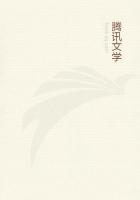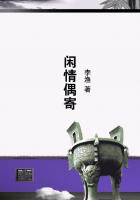The professional astrologers, as Pliny[21] says, were Chaldeans, Egyptians and Greeks. The Etruscans, too, the professional diviners of Rome, cultivated the science. Many of these "Isiaci conjectores" and "astrologi de circo" were worthless charlatans, but on the whole the science seems to have attracted the attention of thoughtful men of the period. Garrod quotes the following remarkable passage from Tacitus: "My judgment wavers," he says, "I dare not say whether it be fate and necessity immutable which governs the changing course of human affairs--or just chance. Among the wisest of the ancients, as well as among their apes, you will find a conflict of opinion. Many hold fixedly the idea that our beginning and our end--that man himself--is nothing to the Gods at all. The wicked are in prosperity and the good meet tribulation. Others believe that Fate and the facts of this world work together. But this connection they trace not to planetary influences but to a concatenation of natural causes. We choose our life that is free: but the choice once made, what awaits us is fixed and ordered. Good and evil are different from the vulgar opinion of them. Often those who seem to battle with adversity are to be accounted blessed; but the many, even in their prosperity, are miserable. It needs only to bear misfortune bravely, while the fool perishes in his wealth. Outside these rival schools stands the man in the street. No one will take from him his conviction that at our birth are fixed for us the things that shall be. If some things fall out differently from what was foretold, that is due to the deceit of men that speak what they know not: calling into contempt a science to which past and present alike bear a glorious testimony" (Ann. vi, 22).
[20] Manili Astronomicon Liber II, ed. H. W. Garrod, Oxford, 1911, p. lxix, and II, ll. 84-86.
[21] Pliny: Natural History, Bk. XVIII, Chap. XXV, Sect. 57.
Cato waged war on the Greek physicians and forbade "his uilicus all resort to haruspicem, augurem, hariolum Chaldaeum," but in vain; so widespread became the belief that the great philosopher, Panaetius (who died about 111 B.C.), and two of his friends alone among the stoics, rejected the claims of astrology as a science (Garrod). So closely related was the subject of mathematics that it, too, fell into disfavor, and in the Theodosian code sentence of death was passed upon mathematicians. Long into the Middle Ages, the same unholy alliance with astrology and divination caused mathematics to be regarded with suspicion, and even Abelard calls it a nefarious study.
The third important feature in Babylonian medicine is the evidence afforded by the famous Hammurabi Code (circa 2000
B.C.)-- a body of laws, civil and religious, many of which relate to the medical profession. This extraordinary document is a black diorite block 8 feet high, once containing 21 columns on the obverse, 16 and 28 columns on the reverse, with 2540 lines of writing of which now 1114 remain, and surmounted by the figure of the king receiving the law from the Sun-god. Copies of this were set up in Babylon "that anyone oppressed or injured, who had a tale of woe to tell, might come and stand before his image, that of a king of righteousness, and there read the priceless orders of the King, and from the written monument solve his problem"
(Jastrow). From the enactments of the code we gather that the medical profession must have been in a highly organized state, for not only was practice regulated in detail, but a scale of fees was laid down, and penalties exacted for malpraxis.
Operations were performed, and the veterinary art was recognized.
An interesting feature, from which it is lucky that we have in these days escaped, is the application of the "lex talionis"-- an eye for an eye, bone for a bone, and tooth for a tooth, which is a striking feature of the code.
Some of the laws of the code may be quoted:
Paragraph 215. If a doctor has treated a gentleman for a severe wound with a bronze lances and has cured the man, or has opened an abscess of the eye for a gentleman with the bronze lances and has cured the eye of the gentleman, he shall take ten shekels of silver.
218. If the doctor has treated a gentleman for a severe wound with a lances of bronze and has caused the gentleman to die, or has opened an abscess of the eye for a gentleman and has caused the loss of the gentleman's eye, one shall cut off his hands.
219. If a doctor has treated the severe wound of a slave of a poor man with a bronze lances and has caused his death, he shall render slave for slave.
220. If he has opened his abscess with a bronze lances and has made him lose his eye, he shall pay money, half his price.
221. If a doctor has cured the shattered limb of a gentleman, or has cured the diseased bowel, the patient shall give five shekels of silver to the doctor.
224. If a cow doctor or a sheep doctor has treated a cow or a sheep for a severe wound and cured it, the owner of the cow or sheep shall give one-sixth of a shekel of silver to the doctor as his fee.[22]
[22] The Oldest Code of Laws in the World; translated by C. H. W.
Johns, Edinburgh, 1903.
HEBREW MEDICINE
THE medicine of the Old Testament betrays both Egyptian and Babylonian influences; the social hygiene is a reflex of regulations the origin of which may be traced in the Pyramid Texts and in the papyri. The regulations in the Pentateuch codes revert in part to primitive times, in part represent advanced views of hygiene. There are doubts if the Pentateuch code really goes back to the days of Moses, but certainly someone "learned in the wisdom of the Egyptians" drew it up. As Neuburger briefly summarizes:

